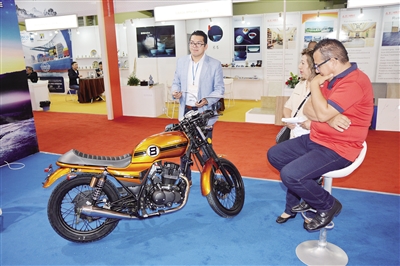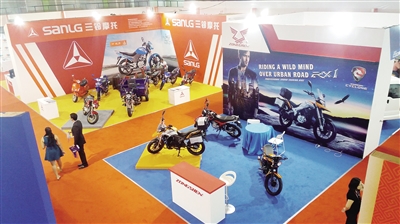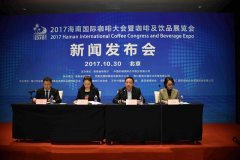Honduras is not a country with only coffee.

For professional baristas, please follow the coffee workshop (Wechat official account cafe_style)
Holding a trade exhibition will help Honduran enterprises to better understand Chinese enterprises and strengthen exchanges and cooperation between the two sides. Yue Yunxia, an expert from the Latin American Research Institute of the Chinese Academy of Social Sciences, said in an interview with China Trade Daily a few days ago that Honduras has an advantage in geographical location and is a country full of development potential.
According to reports, Honduras is located in the north of Central America, the Caribbean Sea to the north, the Gulf of Fonseca in the Pacific Ocean to the south, Nicaragua and El Salvador to the east and south, and Guatemala to the west. More than 3/4 of the country is mountainous and plateau, with mountains extending from west to east, inland lava plateaus, intermountain valleys and coastal plains.
In recent years, Honduras has had frequent economic and trade exchanges with China. Yue Yunxia said: "in the past, trade between China and Honduras was re-exported to Honduras through Panama. In recent years, the direct customs statistics of trade volume between China and Honduras has also increased significantly. " According to data from the Central Bank of Honduras, Honduras imported US $1.085 billion from China in 2016, accounting for 12.2 percent of Honduras's total imports. China has overtaken Guatemala to become the second largest source of imports from Honduras. With the widening of the pace of Chinese enterprises "going global", going to Honduras to carry out economic and trade activities has not only expanded the influence of Chinese enterprises, but also promoted in-depth understanding between the two sides.

Yue Yunxia told reporters that the leading industry in Honduras is agriculture, and its industrial foundation is relatively weak. It is reported that Honduras's economic activities and population are mainly concentrated in the capital and San Pedro Sula as the center of the central and western regions, sparsely populated in the east. There are many small enterprises in industry and mining, such as textile, tobacco, sugar, dairy, wood processing, metallurgy, chemistry and so on. The mining industry is mainly silver mining. Exports are mainly bananas and coffee, accounting for more than half of the total export value, as well as timber, Manila hemp and mineral products, as well as imported textiles, food, machinery and equipment, petroleum products and so on.
Yue Yunxia said that for coffee production, the geographical conditions of Honduras are no less than those of its neighboring coffee-producing countries, such as Guatemala and Nicaragua. Honduras is less well-known in the consumer market than these countries because of its lack of strong support in the handling and transportation of raw beans.
It is understood that there are 280000 hectares of coffee gardens in Honduras, mainly small coffee merchants, most of which are less than 3.5 hectares. In the coffee garden, people collect coffee beans by hand, then handle them carefully and process them to meet the needs of the market and consumers' different tastes. Honduras collects 3 million bags of coffee every year, provides a lot of coffee and unique coffee aroma, and has become the second largest coffee exporter in Central America and the tenth largest coffee exporter in the world.

"in addition to economic and trade exchanges with China, Honduras is also rich in tourism resources." Yue Yunxia told reporters that Honduras, originally the residence of the Indian Mayans, is located at the ruins of the ancient city of Copan Mayan in the capital. It is one of the most popular tourist destinations in Honduras and the oldest and largest ancient city site in the Mayan civilization. In Honduras, there is the world's largest underwater cave, the famous Great Blue Cave, which is located about 96.5 kilometers off the sea from the satellite photo of the Great Blue Hole in Burley, Beacon Lighthouse Reef. The Great Blue Cave is round in appearance, with a diameter of about 304 meters and a depth of about 145 meters. It is one of the top ten geological wonders in the world. The mysterious undersea cave is surrounded by haunted sharks, making it one of the most famous diving resorts in the world.
In addition, the Leo Platano Biosphere Reserve is a protected area off the Caribbean coast of Honduras, covering an area of 5250 square kilometers, roughly along the Platano River. There are many endangered species in the reserve, which was listed on the UNESCO World Heritage list in 1982 and on the endangered World Heritage list twice. The reserve is a tropical rain forest of mountains and lowlands, with more than 2000 species of animals and plants, and is part of the "Central American Biological Corridor".
Important Notice :
前街咖啡 FrontStreet Coffee has moved to new addredd:
FrontStreet Coffee Address: 315,Donghua East Road,GuangZhou
Tel:020 38364473
- Prev

Gold filter coffee is listed on the market, focusing on high-quality coffee beans.
Gold coffee filter hanging on the market, the launch of four main boutique-grade coffee beans, shallow, medium and deep roasting to meet the different needs of consumers. Photo / Gold Coffee provides professional barista communication Please follow the Coffee Workshop (official Wechat account cafe_style) Gold Coffee launched the surprise system "play latte" in November, which combines loquat cream, Espresso, fragrant pure milk, thick milk foam and smooth fresh milk.
- Next

The 2017 Hainan International Coffee Conference will open in December to create a new business card for Hainan internationalization.
Professional baristas exchange please follow the coffee workshop (Wechat official account cafe_style) October 30, 2017 Hainan International Coffee Conference and Coffee and Beverage Exhibition press conference held in Beijing, the reporter learned from the press conference, the exhibition will be held on December 1-3 in Hainan International Convention and Exhibition Center and Haikou Marriott Hotel, with Didi fragrance World as the theme, invite China
Related
- Can lightly roasted coffee beans be used to extract espresso? How finely should you grind high-quality coffee beans to make Italian latte?
- What is the difference between the world's top rose summer coffee and Yejia Shefi? What are the flavor characteristics of Yega Shefi coffee and Panama rose summer?
- The ceremony is full! Starbucks starts to cut the ribbon at a complimentary coffee station?!
- A whole Michelin meal?! Lucky launches the new "Small Butter Apple Crispy Latte"
- Three tips for adjusting espresso on rainy days! Quickly find the right water temperature, powder, and grinding ratio for espresso!
- How much hot water does it take to brew hanging ear coffee? How does it taste best? Can hot water from the water dispenser be used to make ear drip coffee?
- What grade does Jamaica Blue Mountain No. 1 coffee belong to and how to drink it better? What is the highest grade of Blue Mountain coffee for coffee aristocrats?
- What are the flavor characteristics of the world-famous coffee Blue Mountain No. 1 Golden Mantelin? What are the characteristics of deep-roasted bitter coffee?
- Can I make coffee a second time in an Italian hand-brewed mocha pot? Why can't coffee be brewed several times like tea leaves?
- Hand-brewed coffee flows with a knife and a tornado. How to brew it? What is the proportion of grinding water and water temperature divided into?

